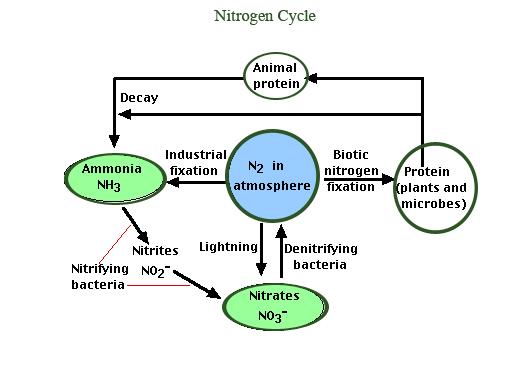Updated By: LatestGKGS Desk
Nitrogen Cycle: Fixation, Chemicals, Bacteria, Mechanism, Importance

Nitrogen fixation in the atmosphere, Role of Nitrogen, Importance, Factors causing Nitrogen fixation
When animals eat the plants, the organic nitrogen is transferred to the animal. When the plant and animal die, the decomposition takes place where the Nitrifying bacteria e.g, Nitrobacter sp. will then convert the ammonia into nitrites and nitrates which is released into the atmosphere. Hence, repeating the whole process is known as the Nitrogen Cycle.
The nitrogen cycle is important for the:
The stable Optimum growth of Plants.
The majority of nitrogen is obtained from the atmosphere is used in the production of NH3 (Haber process) which is a raw source for the manufacture of Nitric acid (Ostwald process).
Synthesis of natural and artificial Fertilizer e.g, Ammonium Sulphate.
Nitrogen fixation is a process by which nitrogen in the Earth's atmosphere is converted into ammonia or other molecules available to living organisms. Atmospheric nitrogen or molecular dinitrogen is relatively inert: it does not easily react with other chemicals to form new compounds. Nitrogen fixation plays an important role in the earth's ecosystem as it enables plants to utilize nitrogen as a natural fertilizer and then put oxygen back into the atmosphere.
After fixation, bacteria use nitrification to turn ammonium into nitrates which is usable by plants.


